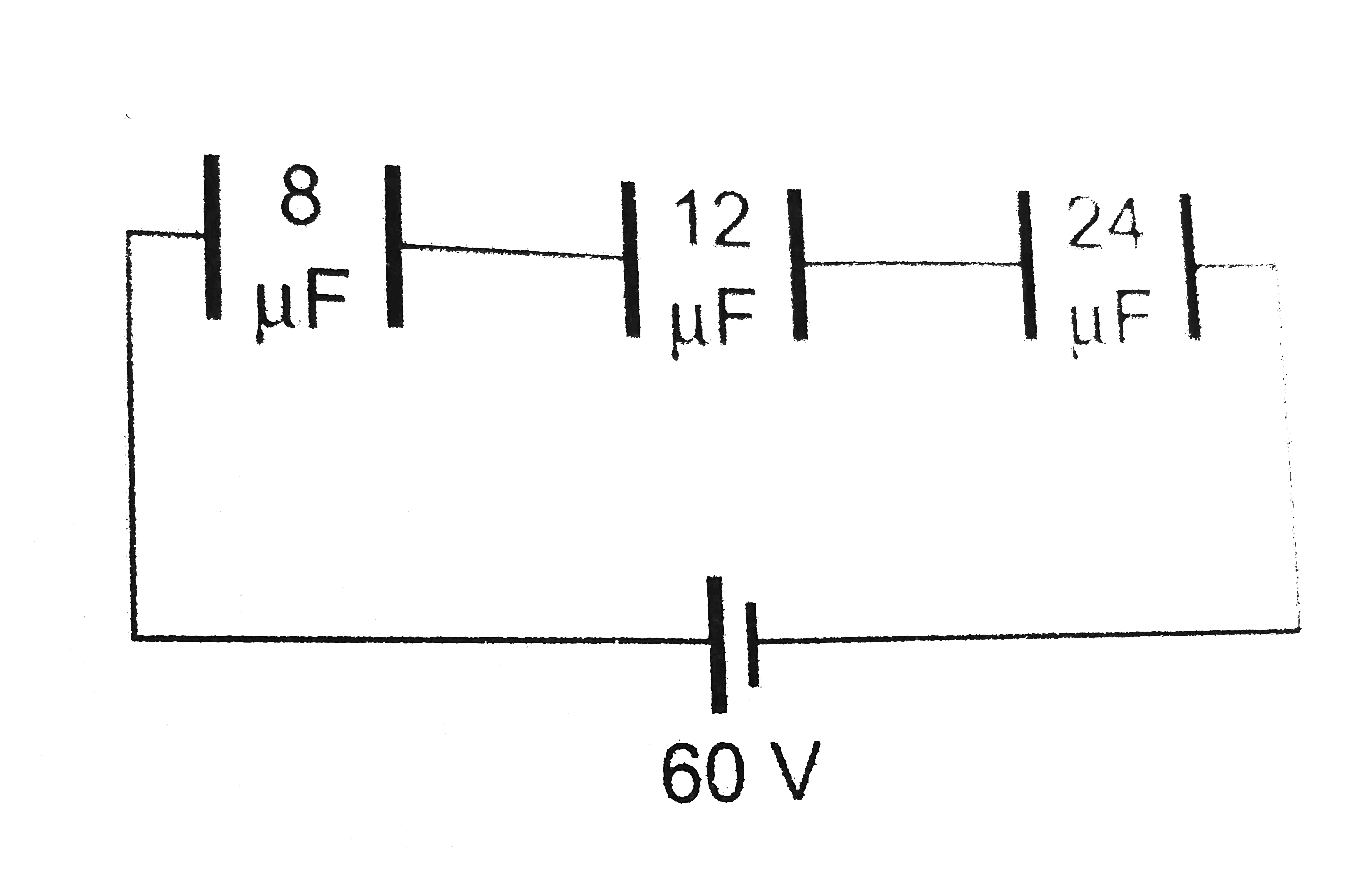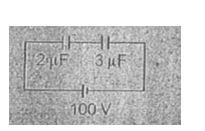n identical capacitors are connected in parallel to a potential difference V. These capacitors are then reconnected in sereis, their charges being left undisturbed. The potential difference obtained is
zero
(n−1)V
nV
n2V
The correct Answer is:C
Vnet=V1+V2+………. (in series)
=V+V+…….
nV
Topper's Solved these Questions
- CAPACITORSBOOK - DC PANDEYCHAPTER - CAPACITORSEXERCISE - OBJECTIVE_TYPE
1 Videos
- CAPACITORSBOOK - DC PANDEYCHAPTER - CAPACITORSEXERCISE - OBJECTIVE_TYPE
1 Videos
- ATOMSBOOK - DC PANDEYCHAPTER - ATOMSEXERCISE - MEDICAL ENTRANCES GALLERY
42 Videos
- COMMUNICATION SYSTEMBOOK - DC PANDEYCHAPTER - COMMUNICATION SYSTEMEXERCISE - Subjective
11 Videos
Similar Questions
Knowledge Check
Six identical capacitors are joined in parallel, charged to a potential difference of 10 V, separated and then connected in series. Then the potential difference between the free plates is
A10 VB30 VC60 VD(106)VTwo capacitors of 3μF and 6μF are connected in series and a potential difference of 900 V is applied across the combination. They are then disconnected and reconnected in parallel. The potential difference across the combination is
AZeroB100 VC200 VD400 VWhen a parallel plate capacitor is connected to a source of constant potential difference
Aall the charge drawn from source is stored in the capacitorBthe potential difference across capacitor grows very rapidly initially and this rate decreases to zero eventuallyConly half of the energy drawn from the source is dissipated outside the capacitorDall of these
Find the potential difference and charge on each capacitor.

View SolutionA 2.0μF capacitor and a 4.0μF, capacitor are connected in parallel across in 300V potential difference (a) What is the total energy stored by them? (b) They are next connected in series across that potential difference. What is the ratio of the total energy stored by them in the parallel arrangement to that in the series arrangement?
View SolutionA capacitor of capacitance C1 is charged to a potential V1 , while another capacitor of capacitance C2 is charged to a potential difference V2 . The capacitors are now disconnected from their respective charging batteries and connected in parallel to each other
Find the total energy stored in the parallel combination of two capacitors.
View SolutionA capacitor of capacitance C1 is charged to a potential V1 , while another capacitor of capacitance C2 is charged to a potential difference V2 . The capacitors are now disconnected from their respective charging batteries and connected in parallel to each other
Find the total energy stored in the two capacitors before they are connected .
View SolutionTwo identical capacitors are joined in parallel, charged to a potential V and then separated and then connected in series i.e. the positive plate of one is connected to negative of the other
View Solution

